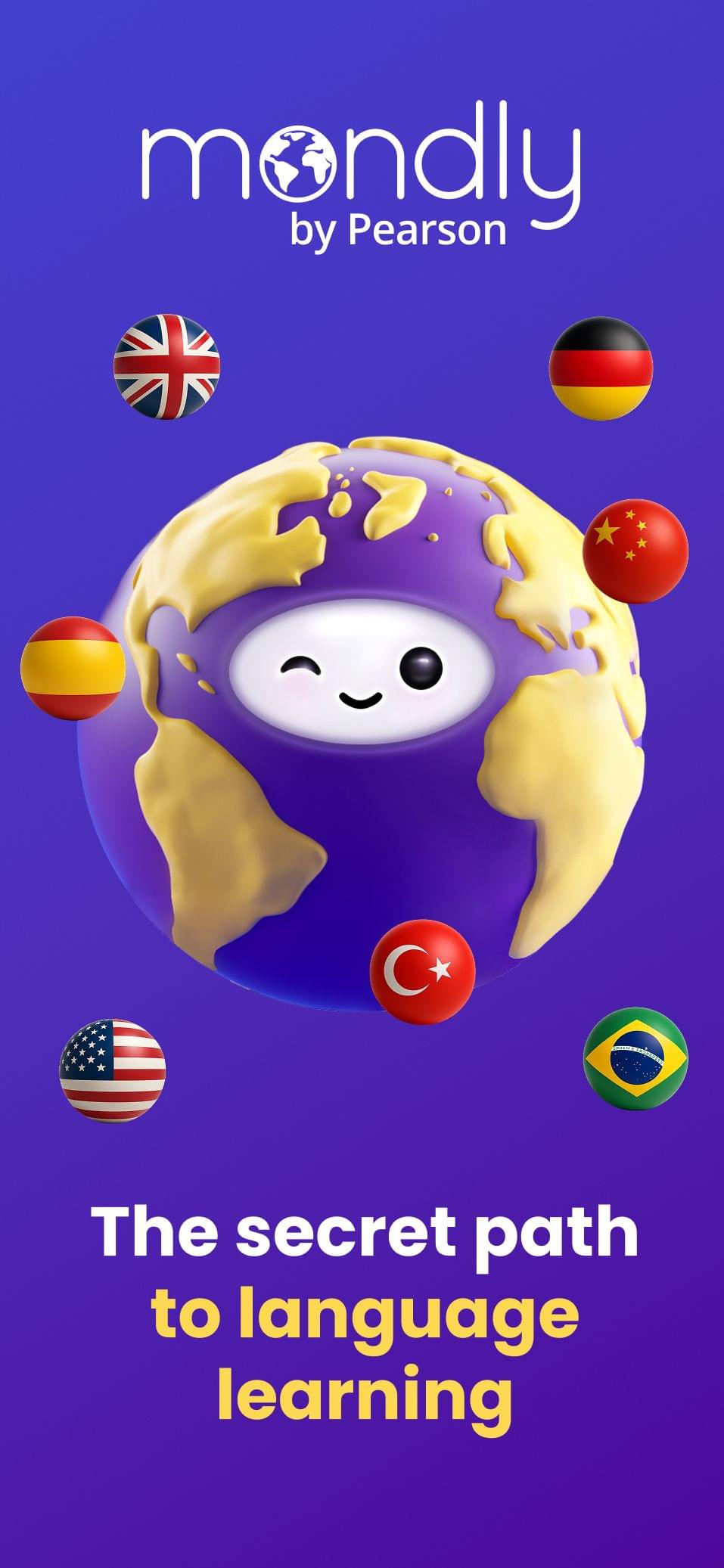Portuguese phrases and expressions you can learn today
Start learning the most common Portuguese phrases
Basic Portuguese phrases
Portuguese phrases for information and direction
Portuguese phrases for accommodations
Portuguese phrases for shopping

Top 10 Portuguese phrases and sentences you need to know
We have prepared a list of common Portuguese expressions that will help you have a basic conversation in Portuguese in no time. Let's dig in!
1. Bom dia. = Good morning.
If you find yourself in Portugal it is always polite to say “Hi” every morning because Portuguese speakers are really sociable. “Good morning” in Portuguese is "Bom dia".
Now enjoy being greeted by a native speaker:Bom dia.
2. Boa tarde. = Good afternoon.
But what if it's later in the day and you want to greet someone from Brazil? Well, “Good afternoon” in Portuguese is "Boa tarde".
Now listen to how a Portuguese speaker would pronounce it:Boa tarde.
3. Meu nome é Mondly. = My name is Mondly.
Let's say your name is Mondly, you are traveling to Brazil and meet someone on the street. To introduce yourself you can say "Meu nome é Mondly" which means "My name is Mondly" in Portuguese.
Listen to how a person from São Paulo would pronounce this phrase:Meu nome é Mondly.
4. Muito prazer em conhecê-lo. = I'm pleased to meet you.
Now that you have introduced yourself, a Portuguese speaker would respond "Muito prazer em conhecê-lo." which means "I'm pleased to meet you" in Portuguese.
Listen to a native Portuguese speaker saying that exact sentence to you right now:Muito prazer em conhecê-lo.
5. Como vai você? = How are you?
At this point, it might be polite to ask the person you are having a conversation with "How are you?" in Portuguese.
It’s really easy to pronounce. Here's how to say it:Como vai você?
6. Bem, obrigada. E você? = Fine, thanks. And you?
If, on the other hand, a Portuguese speaker asks you first how are you doing, this is how you can answer politely. Apply the unspoken rule of politeness everywhere you go and many doors shall joyously open in your path.
Here's a native speaker showing you how to say it:Bem, obrigada. E você?
7. Gostaria de uma cerveja. = I’d like a beer.
And because you might find yourself in a bar when visiting Portugal you might have to learn how to order a beer in Portuguese.
Let a native Portuguese speaker show you how it's done:Gostaria de uma cerveja.
8. Desculpe. = I'm sorry.
There are times when what you ordered is out of stock, so a bartender might say "Desculpe" which means "I'm sorry" in Portuguese.
Listen to how it's pronounced:Desculpe.
9. Até breve! = See you soon!
This is a good way of saying "See you soon" in Portuguese to a co-worker from Brazil that you are probably going to see the next day.
Delight your senses with a Portuguese speaker saying the phrase:Até breve!
10. Adeus. = Goodbye.
Let's end with the best way to end a pleasant conversation politely. This is another way of saying "Goodbye" in Portuguese.
Here's how a person from Lisbon would pronounce it:Adeus.
Portuguese question phrases

Quê?: What? Example: O que é isto?: What is this?
Quem: Who Example: Para quem?: Who is it for?
Qual: Which Example: Qual você recomenda?: Which one do you recommend?
Quanto?: How much/many? Example: Quanto é que custa o quarto por noite?: How much is this room?
Porquê?: Why? Example: Porque você discute com ele?: Why do you argue with him?
Quando?: When? Example: Quando é que aterramos?: When do we land?
Onde?: Where? Example: Onde fica a saída?: Where is the exit?
Como?: How? Example: (Você) gosta de aqui estar?: How do you like it here?

The benefits of learning the most common Portuguese phrases first

Immerse yourself in Portuguese from day 1
Immersion is one of the most effective ways of learning a new language and not having the means to travel to a Portuguese-speaking country shouldn’t keep you from experiencing it. Using Mondly, you’ll immerse yourself in Portuguese from day 1 with real Portuguese conversations.

Have real conversations in Portuguese today
Once you learn a few basic sentences in Portuguese, you will have the knowledge to start your first Portuguese conversation. That’s why, at Mondly, we’ve created experiences that simulate real-life conversations to get you speaking Portuguese in no time.

Become fluent in Portuguese quicker
Starting with the basics, we quickly lay a foundation for you to learn more complex Portuguese phrases and sentences. We gradually build your Portuguese knowledge so you get fluent faster than you could imagine.

Feel how easy to learn the Portuguese language can be
Every language experience should start gradually, from the easiest to the more complex concepts. Starting with the easiest and most common Portuguese phrases, you will feel confident in your ability to learn a new language. That’s one of the core principles Mondly is built on.











